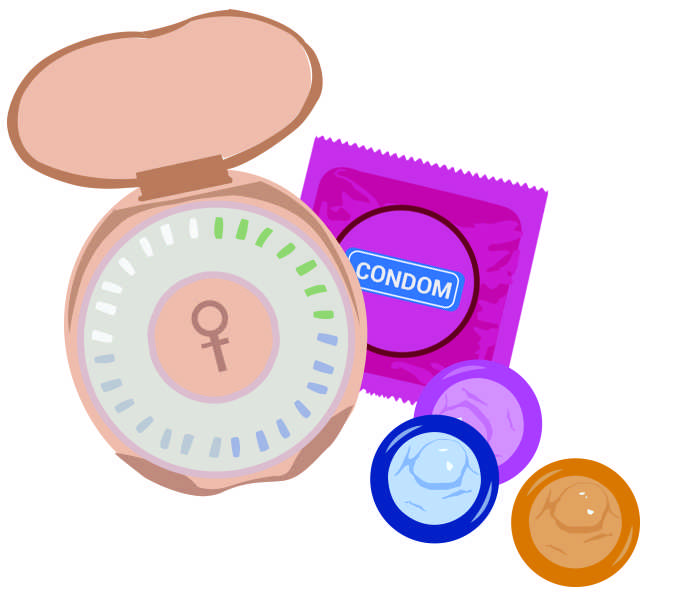The safe way to screw without screwing yourself
You wouldn’t think we would need this conversation, would you? We are intelligent students and responsible adults. But recently, I’ve questioned how responsible we truly are. I’ve had several conversations over the past few months that brought light to the fact that women and men on our campus do not have basic contraceptive knowledge.
I’m an advocate for sex. I’m an advocate for masturbation. I’m an advocate for love.
I’m also an advocate for educating yourself.
Whether or not you choose to engage in sex is your choice, but if you are sexually active, it’s important to know what kind of contraceptive works with you and with your body.
Religion plays an obvious role in this discussion; particularly at Saint Joseph’s University, a school that identifies as being founded in Catholic beliefs and Jesuit ideals.
For those who identify as female, we do have a nurse practitioner who specializes in women’s health. According to the university’s Student Health Center website, the Center offers Women’s Health services “which include information on related topics, confidential consultation with clinicians, instruction in self-breast examination, routine gynecologic examination with Pap tests and treatment or referral if necessary.” For those who identify as male, the Student Health Center offers Men’s Health Services, “which include information on related topics, confidential consultation with clinicians and treatment or referral if necessary.”
But, because we are a private, Jesuit university, St. Joe’s does not provide its students with contraceptives, unlike many of our neighboring colleges. I firmly believe that the university has every right to make that choice, as I realize the decision aligns with their Catholic mission.
This being said, I also believe that as college-aged individuals, we cannot use the lack of available contraceptives on campus as an excuse for ignorance.
Go to the store. Buy a condom. Use protection. Anything less than that is unacceptable.
For those who feel they don’t have a clear understanding of the various contraceptive options, Planned Parenthood is a great place to gain information. There are several different kinds of birth control. For women, we have the birth control pill, the patch, an IUD, a NuvaRing, a sponge, a cervical cap, among others. For men, the options are spermicide, vasectomy, withdrawal and condoms. And, of course, I would be remiss if I were not to mention abstinence.
But, alas, if you’ve read this far, there’s a slight chance you might be doing the dirty already.
In the conversations I’ve had on our campus, I’ve found that most are afraid of pregnancy and not as concerned with catching STDs. I would encourage you to rethink the message that this kind of ideology sends: Do you lack practicality? Are you unconcerned with using appropriate protection?
Contraception is essential. If you are a woman on the pill, decide to have sex and do not choose to also use a condom— well, I worry. To my knowledge, over their four years, most college students engage in sex with many different partners. When you don’t use a condom, you open yourself up – sorry for the gross metaphor – to potentially inviting an STD to nestle up in you. And vice versa for the men.
Condoms are the only absolute way to protect against STDs. If you are in a committed relationship, and both you and your partner have been checked for STDs—then go to town. But, for one-night stands, where you don’t know where his banana has been, time to use a condom.
And while we are on that, companies are making crazy condoms so that you will, in fact, use them. Trojan makes what they call a “Pleasure Pack.” It’s literally in the name. No excuses.
Contraceptives are important. Further, understanding what kind of contraceptive works for you and your lifestyle is important. Talk to your gynecologist. Explore options. Be practical.



















































